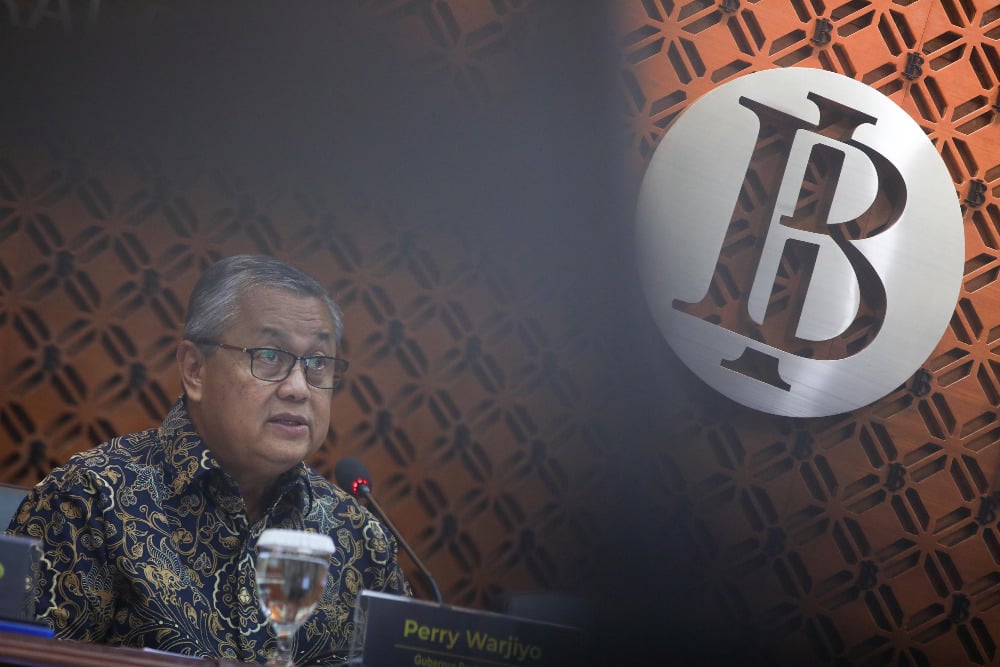Judul : The Room for BI Rate Reduction is Getting Narrower, Pressured by Trump's Tax and Spending Bill
link : The Room for BI Rate Reduction is Getting Narrower, Pressured by Trump's Tax and Spending Bill
The Room for BI Rate Reduction is Getting Narrower, Pressured by Trump's Tax and Spending Bill

Best for you , JAKARTA — The room for interest rate cuts by the Bank of Indonesia or BI Rate expected to become increasingly limited, as with Fiscal policy expansive di United States .
Meanwhile, the U.S. Senate has passed the tax and spending bill proposed by President Donald Trump. The policy that Trump called as Big Beautiful Bill It will create a large fiscal stimulus.
The stimulus includes permanent tax cuts for the middle class, business tax cuts, as well as an aggressive increase in government spending in the defense, infrastructure, and social programs sectors.
Josua Pardede, Chief Economist of PT Bank Permata Tbk. (BNLI), considers that the stimulus has significantly boosted the US economic growth in the short term. However, in the medium and long term, risks emerge. Fiscal deficit expansion which is quite large.
For example, according to an independent analysis by the Joint Tax Committee, the tax provisions in this bill will reduce government revenue by $4.5 trillion over the next 10 years, thereby increasing the national debt burden.
As a result, Joshua said, inflation is expected to rise due to a surge in aggregate demand without a corresponding increase in productivity. The main implication is the U.S. central bank's interest rate policy, the Federal Reserve or The Fed, which is likely to keep high interest rates longer than previously expected.
High inflation and expanding budget deficits will put pressure on the Fed to maintain stance "Strict monetary policy to keep inflation under control. This situation has the potential to create significant implications for international capital flows, including in Indonesia," said Josua, quoted on Monday (7/7/2025).
She explained that for the Indonesian financial market, this expansionary U.S. fiscal policy could lead to capital outflows in the short and medium term. The reason is that the U.S. interest rates remaining high over a longer period will increase the attractiveness of investments in the U.S. compared to developing countries like Indonesia.
Whether we like it or not, there is an increased risk of the rupiah depreciating against the US dollar, which can create pressure on the stability of the domestic financial market, increase volatility in the stock and bond markets, and increase liquidity risks and foreign debt costs.
He added, in this situation, Bank Indonesia (BI) will face a policy dilemma. On one hand, domestic inflation is still relatively low, so fundamentally there is room for interest rate cuts.
On the other hand, the increased risk of capital outflows due to more attractive returns on U.S. financial assets makes BI (Bank Indonesia) need to be more cautious.
"Bank Indonesia may be more cautious and keep high interest rates for longer to maintain the rupiah's stability and prevent the risk of capital outflows," said Josua.
He also encouraged BI to focus on maintaining exchange rate stability in the short term. Strategies such as foreign exchange market intervention, strengthening monetary market instruments, and optimizing foreign exchange reserves are considered to remain the monetary authority's mainstay in maintaining domestic financial market stability.
In addition, coordination between fiscal and monetary policies is key to maintaining national economic resilience against external pressures. From the fiscal perspective, Josua believes the government needs to maintain credible fiscal consolidation by ensuring the state budget deficit remains controlled and by optimizing the productivity of state spending, especially in sectors that have a high multiplier effect on the national economy.
"Strengthening the tax revenue base is also a crucial issue amid external pressures," he added.
As for BI, it is scheduled to announce the fate of BI Rate on July 16, 2025. Meanwhile, The Fed will announce the fate of Fed Fund Rate on July 30 local time.
Demikianlah Artikel The Room for BI Rate Reduction is Getting Narrower, Pressured by Trump's Tax and Spending Bill
Anda sekarang membaca artikel The Room for BI Rate Reduction is Getting Narrower, Pressured by Trump's Tax and Spending Bill dengan alamat link https://www.punyakamu.com/2025/07/the-room-for-bi-rate-reduction-is.html
0 Response to "The Room for BI Rate Reduction is Getting Narrower, Pressured by Trump's Tax and Spending Bill"
Post a Comment